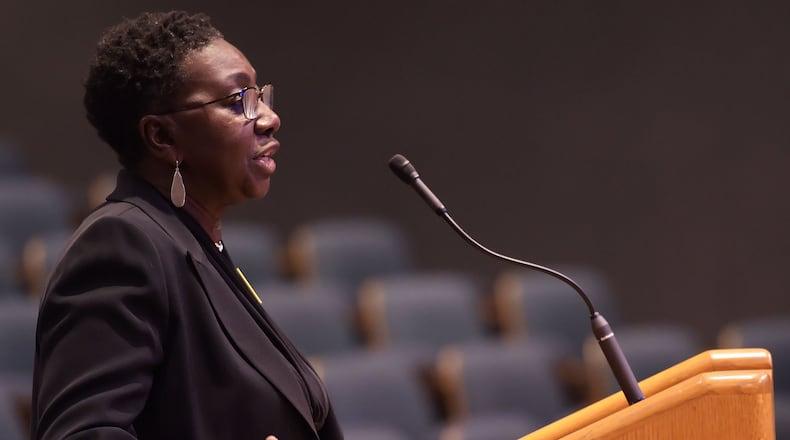Ask mass transit advocates about Gwinnett County's upcoming MARTA referendum, and it's likely an overwhelming number will tell you it's going to pass.
And then, there’s a good chance, they’ll start their next sentence with “but.”
But it's going to be an uphill battle. But the November general election would've been better than the scheduled March 2019 election. But the other side is playing dirty. But turnout is a concern.
Yes, the folks pushing for transit in Gwinnett are reasonably confident in their ultimate success. But they still have plenty of concerns, too.
“If this thing fails, the commission may never have this opportunity again,” said Ted Terry, the chapter director of Georgia’s Sierra Club.
When Gwinnett's Board of Commissioners made the surprise decision last week to schedule a March referendum on joining MARTA, local Democrats and transit advocates immediately cried foul. Not giving the public the chance to vote during November's general election was purely political, they contend, because Republican incumbents don't want to encourage a huge turnout of Democrats.
Charles Bullock, a political scientist at the University of Georgia, has estimated that turnout will likely be around 80 percent less in March than it would be during November, when gubernatorial and Congressional elections are also on the ballot.
A March election “is indicative that is is not about dollars but politicizing this issue and ensuring voter apathy and disenfranchisement,” said Penny Poole, the president of Gwinnett’s chapter of the NAACP.
Some are still advocating for the county to try and reschedule the referendum for November.
But there are also other concerns.
Gabe Okoye, the president of Gwinnett's Democratic Party, worries the commission may cancel March's referendum altogether once mid-terms are over, citing the cost — which has been estimated at $500,000 or more.
Commission Chairman Charlotte Nash said she has no intention of backing off of the call for a March referendum. “And,” she said, “I have heard nothing from any other commissioner that would indicate such thinking.”
“I am already focused on the steps that need to be taken to have an effective public education effort on the [MARTA] contract and the transit plan,” Nash said.
Okoye isn’t sold. He said Democrats running for Gwinnett commission and state legislative seats this fall will address the transit issue head-on.
“We’re not waiting until March” to start pushing the public to approve the MARTA referendum, he said.
Gwinnett GOP president Mike Seigle has said Republicans have no current plans to advocate for or against the MARTA plan, which would involve an extra one-cent sales tax to fund billions of dollars in future transit projects. Those potential projects include heavy rail.
Several polls and surveys conducted by the county in recent years suggest a majority of Gwinnettians would not only support expanding transit offerings but would be willing to pay such a sales tax, too.
“The momentum is with the pro-transit folks,” said Art Sheldon, one of those folks. “The issue is who can get people out to vote in March.”
There could be a big — and well-funded — X-factor.
Terry, the Sierra Club chapter president, pointed this week to Americans for Prosperity, an advocacy group tied to conservative billionaires David and Charles Koch. The group, which touts lower taxes and smaller government as its mission, has recently taken to helping thwart transit referendums across the country.
Part of the Kochs brothers’ empire is also based in products like asphalt, gasoline and automotive parts.
Americans for Prosperity has been credited with helping kill a recent vote in Nashville, Tenn., where, according to The New York Times, polling had suggested overwhelming support for more public transit. It's also been tied to similar efforts in Arkansas, Arizona, Michigan and Utah.
Americans for Prosperity, which has a Georgia office and canvassed in opposition to Cobb County’s recent tax increase, did not immediately return requests for comment this week. It has not commented directly on Gwinnett’s transit vote.
But whether it’s them or a more organic group, a March referendum date certainly gives any opposition to Gwinnett’s efforts more time to gain momentum.
A lot can happen in four extra months.
“It’s possible they’re already spending money and gearing up for something,” Terry said.
About the Author
Keep Reading
The Latest
Featured




